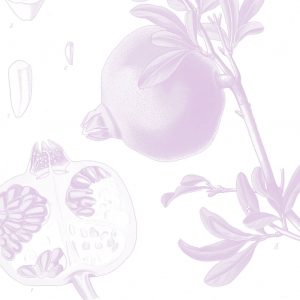
The pomegranate is known to Greeks since ancient times. Theophrastus and Dioscorides describe the pomegranate under the names of “roa” and “roa side”. It is one of the oldest plants known for their pharmaceutical properties. Assyrians and Egyptians were also familiar with the cultivation of pomegranate.
Hippocrates refers to pomegranate as a remedy, while there are also references to this tree and its fruits in the Old Testament.
There are numerous myths around the pomegranate tree and its fruits. Pomegranate symbolizes marriage, fruitfulness, passion, fertility and life. Solomon considered pomegranate as the tree of fertility and praised it for its many powers. In his Song of Songs, he praised pomegranate as a symbol of beautiful feelings hiding under a rough and bitter facade.
Source:
Θανασούλια Βούλα – Σιατής Νίκος (2008). Περί Βοτάνων- Πλήρης οδηγός βοτάνων, μορφολογία, ιδιότητες, τρόποι χρήσεως.
Ιωάννου Κ. Πρινέα & Αναργύρου Μιχ. Σφακιανάκη. Βοτανοθεραπευτική.
Λάμπρου Π. Σπύρου Γιατρού (1984). Τα βότανα και οι θεραπευτικές τους ιδιότητες.
Χατζηπέτρου Θεοδώρα (2015-2016). Αντιλήψεις για το τοπίο μέσα από το μύθο και τα αρχαία ελληνικά κείμενα.
